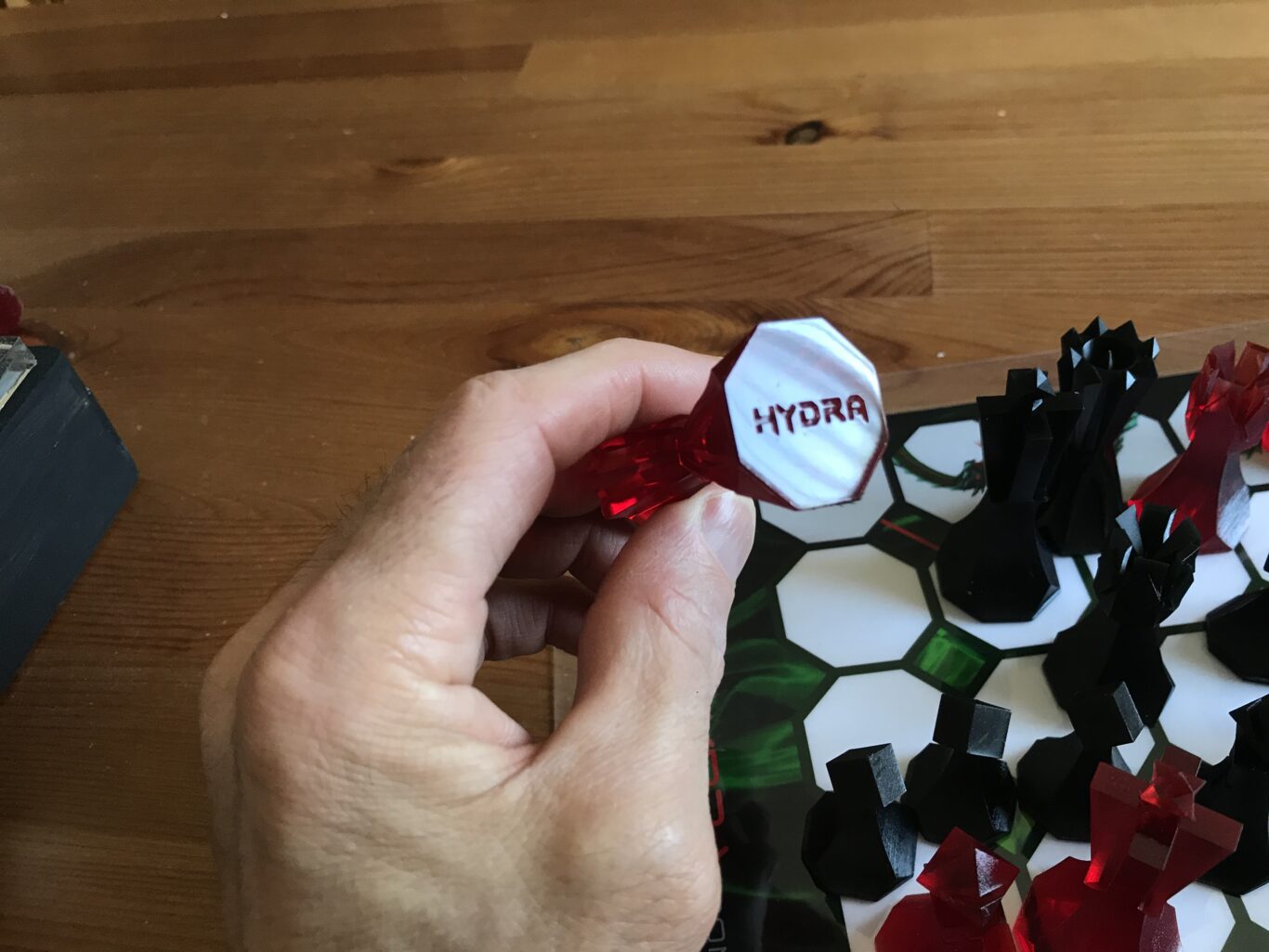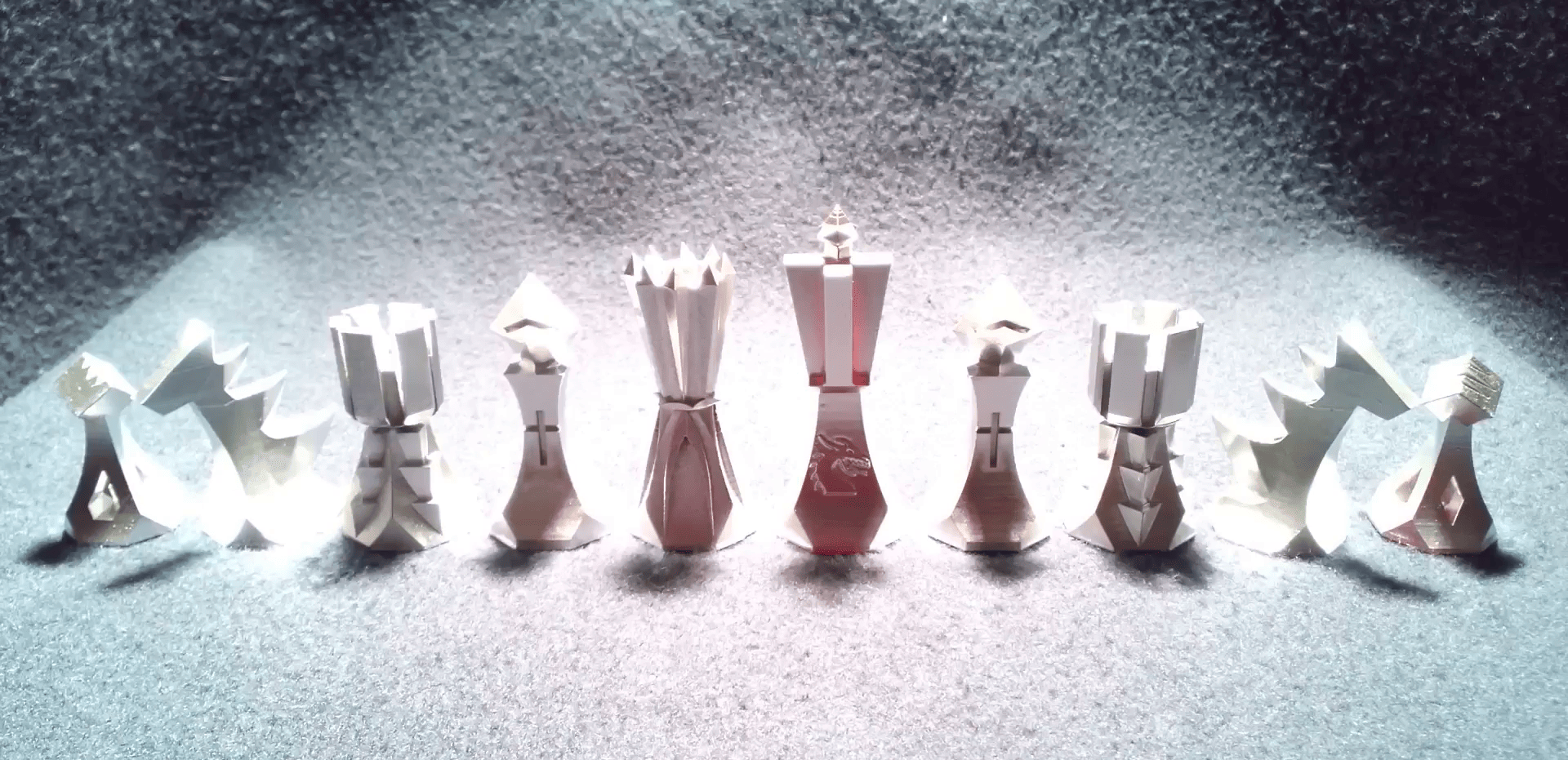We at HYDRA are aware that purists may be tempted to cry “blasphemy” at any claim of improving the game we call classical chess which, as legend has it, made its debut in India during the 6th century. The truth is, early iterations of the game would be roundly ridiculed by today’s avid players – and rule changes were (thankfully) common over the centuries as the game spread from India to Persia, Asia and Europe.
Ever heard anyone suggest that chess would be more exciting without the queens? (gasp!) And yet the queens (as we know them today) didn’t even exist for the first 900 years the game was played!
Further attempts to quicken the pace (so games might begin and end on the same day) led to pawns being allowed an immediate 2 squares, and kings being able to leap to safety while simultaneously advancing a rook.
Does the possibility of promoting a bold pawn to a queen quicken your pulse? What exactly is the logic in allowing the least powerful piece to become the most powerful in the middle of the game!?!! Yet that modern rule change has been widely embraced.
Can you think of any other global game that has been so frequently altered during its lifetime? Neither can we. And so, while we encourage the playing of classical chess we respectfully point out that the game has clearly benefited from significant advances over centuries. Why wouldn’t that continue? Even today, studies of chess variants by AlphaZero “demonstrate the rich possibilities that lie beyond the rules of modern chess.”
Some of the more interesting recent suggestions are pawns allowed 1 or 2 squares on EVERY move (you’d be surprised how much this alters the dynamic of the game! Incidentally, HYDRA achieves similar results due to its smaller board size) or pawns moving forward, or sideways, one square.
Random introduction of pieces on a chess board may not strike you as particularly innovative, but if you are open to another major change (moving from an 8×8 board to a 5×5) we’re confident you won’t be disappointed. In fact, there’s a good chance you’ll find yourself saying what we did:
“This changes everything.”
.
.
HYDRA
chess for the fearless.
.
.
Highlights in the History of Chess
6th century AD – Presumed advent of the game we know as chess (in India).
1495 – Birth of modern chess: To mirror Queen Isabel (and other powerful female figures like Eleanor of Aquitaine) the chess queen is made the most powerful piece on the board. (Isabel is known for her role in the Spanish Inquisition and for sending Columbus west).
15th-17th centuries– Europe responds to the more powerful queens by allowing kings to leap over a piece on their first move. Eventually this morphs into modern castling, which solidifies by the 17th century.
Pawns may advance 2 squares on their first move.
1849 – Howard Staunton (considered the best player in the world at the time) enthusiastically endorses 6 simple, elegant chess piece designs that continue to be the most widely used and recognized throughout the world today.
1851 – In what became known as the “Immortal Game,” Adolf Anderssen sacrifices a bishop, both rooks and his queen to Lionel Kieseritzky before checkmating him. Kieseritzky is stunned, having surrendered only 3 pawns (and his pride).
1886 – First official world chess championship match. First player to win 10 games takes the title. Initial 5 games are played in New York City, the next 4 in St. Louis, and the final 11 in New Orleans. Austrian Wilhelm Steinitz wins 10-5 along with 5 draws.
1924 – Birth of the World Chess Federation (FIDE)
1972 – American Bobby Fischer handily wins the World Chess Title against the monolithic Russian juggernaut in the person of Boris Spassky. It is the first (and last!) time an American has achieved that distinction. This match is still widely considered the greatest event in chess history.
1997 – The rise of computers: Deep Blue defeats World Champion Garry Kasparov, signaling the end of human domination of classical chess.
2019 – First Fischerandom chess tournament. In an unprecedented move, FIDE recognizes a new variety of chess, stating, “Fischer Random is a positive innovation: It injects new energies and enthusiasm into our game. It has won the favor of the chess community, including the top players and the world champion himself. FIDE couldn’t be oblivious to that: It was time to embrace and incorporate this modality of chess.”
2020 – Invention of HYDRA (short-board random-introduction chess).
“The old chess is too limited. Imagine playing cards…and every time the dealer has the same starting hand – you have the same starting hand. What’s the point?” ~ Bobby Fischer
2025 – Pawns may advance 1 or 2 squares on ANY move?
Pawns may move sideways?
Allowed to kill your own piece in order to advance on your opponent, or to escape check?
.
.


